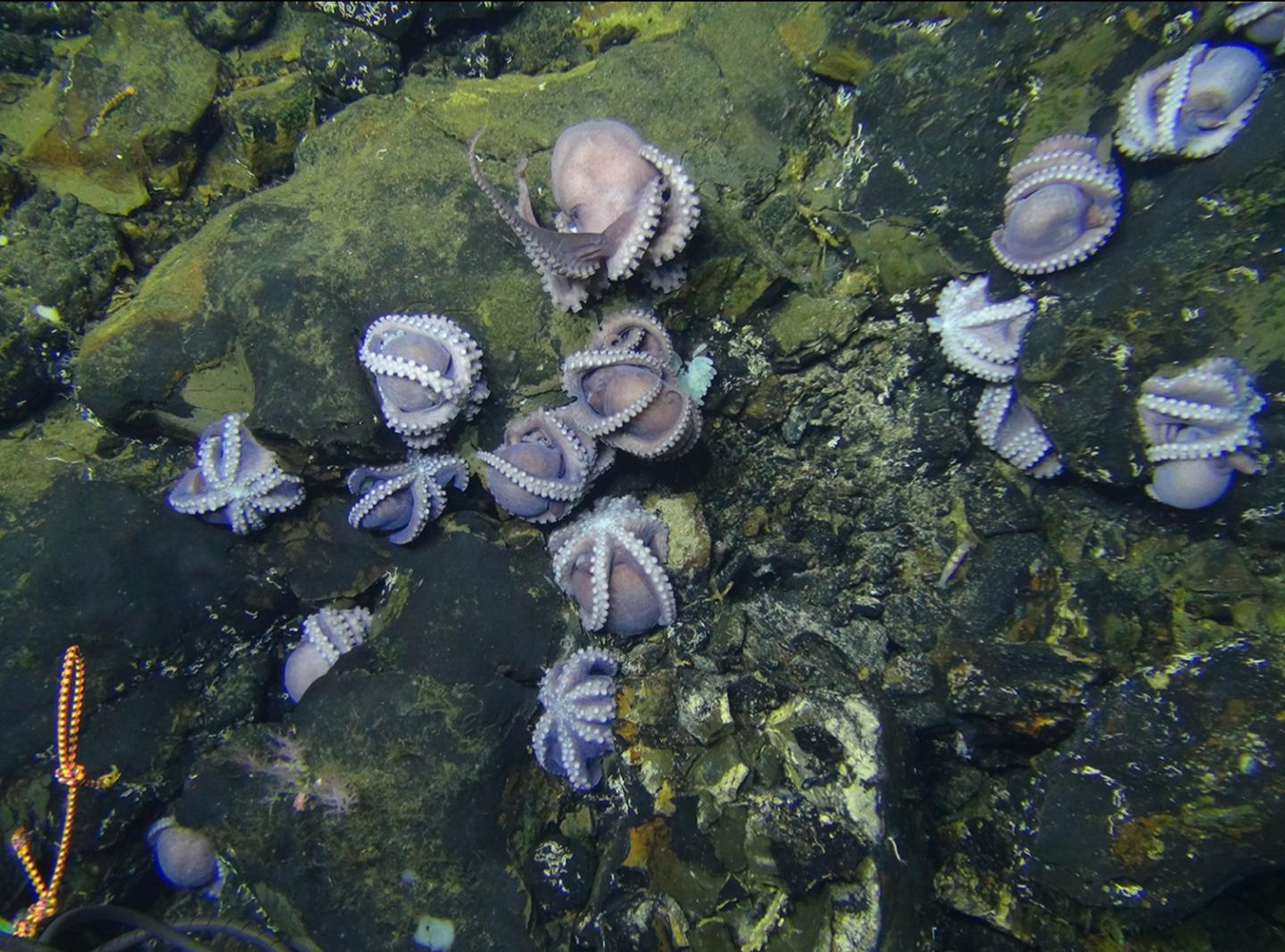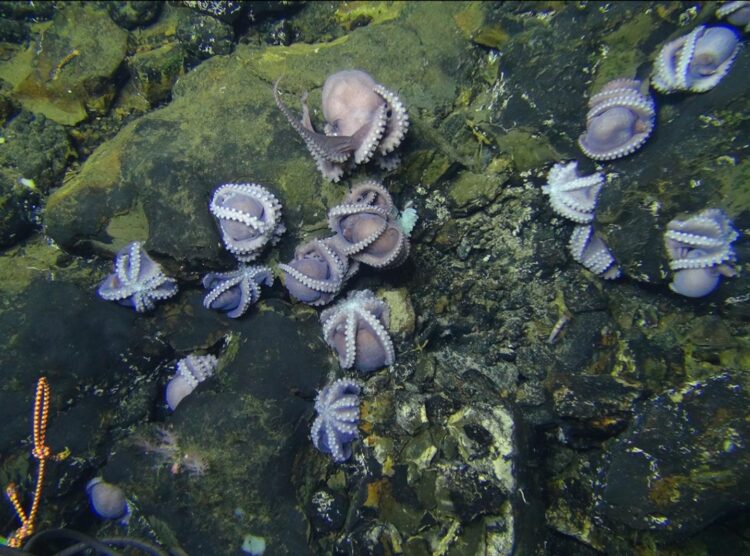
Credit: Photo courtesy of Woods Hole Oceanographic Institution.
Bigelow Laboratory for Ocean Sciences has been awarded $2 million by the National Science Foundation to lead an international effort to accelerate scientific understanding of the environmental impacts of emerging industries in the deep sea – one of the most mysterious, and potentially lucrative, areas of the ocean.
The five-year Crustal Ocean Biosphere Research Accelerator project aims to identify the potential environmental costs of deep-sea activities to inform the policies that will govern them. It will connect diverse science and policy experts in industry, academia, and private institutes in a race against the clock to guide responsible use of these fragile environments.
The deep seafloor covers two-thirds of Earth’s surface area. While humans have only explored a tiny fraction of it, it has been a source of
remarkable discoveries. It is home to complex networks of organisms, from microbes to fish, that can exist miles below the ocean surface in underwater canyons, mountain chains, and volcanoes.
The region has potential for industry and even climate change mitigation. It is a prospective source of rare and valuable metals that are used in many modern electronics, such as smartphones and electric cars. As demand for these finite resources has increased, countries around the world have begun to eye up the seafloor with increased interest. Some also see the region as a stable place to store carbon dioxide, keeping it out of the atmosphere where it accelerates global warming.
However, our understanding of deep-sea ecosystems, as well as their ability to withstand human perturbation, is severely limited. Scientists are concerned human activity on the seafloor may fundamentally alter conditions that took millions of years to establish.
“Deep-sea activities like mining and subseafloor carbon sequestration may help us build a brighter future, but the full potential impacts to these ecosystems are poorly understood,” said Beth Orcutt, project director and a senior research scientist at Bigelow Laboratory. “This project will accelerate understanding of these potential impacts by bringing together key stakeholders to coordinate efforts, generate and share knowledge, and inform decision making.”
Currently, deep-sea mining is more of a goal than a reality, but that is rapidly changing. The technology to extract valuable minerals is still unreliable and does not yield a profitable practice. The industry is also not yet clearly regulated. Some companies are eager to start extraction work. Others – including Samsung, Google, and BMW – have called for a pre-emptive moratorium on the use of seafloor metals until environmental concerns are addressed.
The new project funding comes at an opportune time. This June, the Pacific island nation of Nauru notified the United Nations of its plans to start deep-sea mining. While the legal process has been years in the making, this notification has set off a two-year countdown for the International Seabed Authority to finalize regulations – a breakneck pace for this level of complex science.
“The COVID-19 pandemic caused a pause in deep-sea research, but not in the push for deep-sea mining and deep-sea carbon sequestration solutions,” Orcutt said. “Scientific guidance is needed now more than ever to inform these emerging industries to advise sustainability and prevent serious harm.”
Beyond the immediate needs, the research project will help to close knowledge gaps by helping coordinate and support collaboration on deep-sea expeditions, and promoting new techniques that help speed assessment of deep-sea ecosystems. It will also train at least 50 early-career researchers and make the data from the study accessible – both to promote long-term solutions and collaboration.
The project will be directed by Orcutt along with Julie Huber, an associate scientist from Woods Hole Oceanographic Institution who will serve as the project’s associate director. The COBRA leadership team also includes Jim McManus, vice president for research and administration at Bigelow Laboratory, and scientists from Boston University, University of Alaska Fairbanks, and the University of California Santa Cruz. Partners in the project include the Schmidt Ocean Institute, The Ocean Exploration Trust, Ocean Networks Canada, the Challenger 150 program of the Deep Ocean Stewardship Initiative, and other international collaborators.
###
Bigelow Laboratory for Ocean Sciences is an independent, nonprofit research institute located in East Boothbay, Maine. From the Arctic to the Antarctic, Bigelow Laboratory scientists use innovative approaches to study the foundation of global ocean health and unlock its potential to improve the future for all life on the planet. Learn more at bigelow.org, and join the conversation on Facebook, Instagram, and Twitter.
Media Contact
Steven Profaizer
[email protected]
Original Source
https:/





